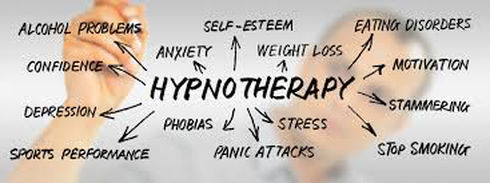Western Plains Psychology’s Michelle Morris has extensive experience in providing clinical and medical hypnosis.
Did you know you have probably been hypnotised before? Many people experience hypnotic trances several times a day, like when you are absorbed so deeply in reading or watching TV that you don’t hear someone speak to you. You may have experienced this while driving along the usual route home, so absorbed in your thoughts that you forget to turn where you had meant to. Maybe when you get to your driveway, you have no real recollection of having driven the last few minutes. While you were paying attention, you were also not paying attention to the things around you.

What is a Hypnotic Trance?
A hypnotic trance is similar to when you deepen your focus on something to the extent that you are not consciously aware of other things taking place simultaneously. Still, you can always regain your alertness to your surroundings at any time.
We define medical hypnosis as a process by which an individual can access deeper levels of consciousness. You can also achieve such states naturally, without hypnosis. It is not the same as sleep, however. An individual does not ‘pass out’ or become unaware of their environment and unable to control their thoughts and feelings. It does not require a weakening or surrendering of their will to any other person. In fact, many believe all hypnosis is ‘self-hypnosis’. It occurs when a person can simply relax their conscious mind’s control to listen to their subconscious mind.
There are many levels or depths to a trance. From a light daydream to a state so deep you can undergo an operation without feeling pain. The hypnotist is only the facilitator. Adults, adolescents, and children alike can readily learn to achieve this state. People can develop skills that allow them to use hypnosis on themselves, on their own, and throughout their lives. You don’t have to experience a deep trance state for hypnosis to be a useful exercise, and you cannot get ‘stuck’ under hypnosis. Research has shown that you will naturally re-awaken from even the deepest of trance states.
Uses of Clinical Hypnotherapy
Hypnosis can be a valuable tool in a treatment plan for many conditions to assist in managing symptoms, changing beliefs and reinforcing outcomes, as well as exploring and understanding past events. Hypnosis can enable you to listen to what is really troubling you underneath what you are consciously telling yourself. It enables you to vividly imagine future states where you have achieved a desired outcome and bypass your critical mind, which might be telling you that you cannot achieve this.
Clinical Hypnotherapy has been successfully used in:
- Assisting in changing unhelpful behaviours and attitudes.
- Enabling deep physical and mental relaxation.
- Managing symptoms of anxiety and depression.
- Assisting those with eating disorders, phobias, sleep disorders, post-traumatic stress, stuttering and sexual dysfunction.
- Changing unwanted behaviours such as nail-biting, thumb sucking and smoking.
- Treating medical conditions such as asthma and migraines.
- Pain management.
What to Expect from Clinical Hypnotherapy
Psychologists use this tool as part of an overarching therapy program designed to identify the contributing factors that helped establish a belief or behaviour and then establish alternatives that have healthier meaning for you.
Changing a simple behaviour will require at least three clinical hypnotherapy sessions. The first is to learn to relax and to commence practising the technique. You may receive a tape or CD of this session to take home and familiarise yourself with the process. It is often necessary to fully explore the reasons and relationships of the issue resulting in the undesired behaviour. You will need at least one more session to begin to explore the meaning of this behaviour. Without fully appreciating this, many sessions of hypnosis assistance will not produce a stable outcome. This is also why follow up sessions should be planned, as you take your desired outcome into the challenges of everyday life.
Melbourne Clinical Hypnotherapy and Hypnotherapy Services
A hypnotic state is where the conscious mind lets go and deep relaxation sets in. Those who undergo hypnosis with clinical hypnotherapists experience a relaxed and focused state. This therapy has been proven to improve mental health and continues to gain scientific credibility. health conditions related to the mind improve especially when combined with other treatments such as physical therapy and pain control.
Contact us today to book a clinical hypnotherapy session.